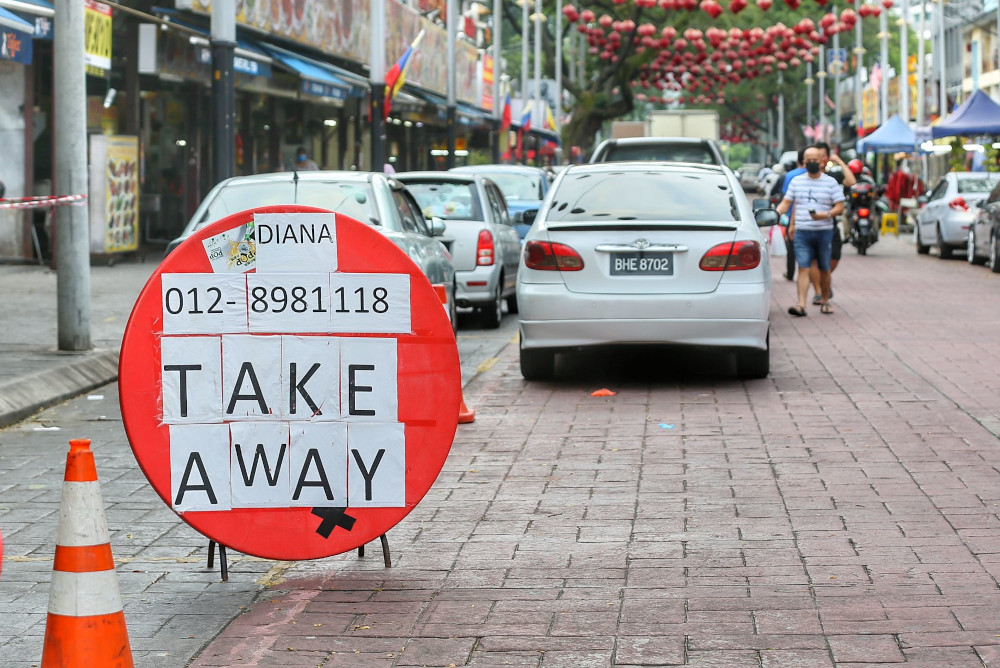KUALA LUMPUR, June 26 — Sri Murugan Manogaran has been running a fine dining restaurant in Johor for over 10 years. He counts every day he is able to keep his restaurant doors open as a blessing.
This is especially so in the current movement control order (MCO), the third imposed in Malaysia that has ravaged small economic players and forced many, even those selling food and beverages — deemed an essential service — to shut down when takeaway orders were insufficient to sustain their businesses.
“For fine dining, it goes without saying that takeaways don’t work. Pointless, as not all food items can be taken away or are good to be packed off for takeaway orders,” Sri told Malay Mail.
He said the average bill at his Matterhorn Bistro is about RM100 these days.
“Please tell me. Who would want to buy takeaway food for RM100? Let’s say a family of four, they won’t mind coming here, enjoying the ambience and eating for RM400, or even more. But to tapau RM100 or RM200, they would not do it. They feel it is not worth taking away at all,” he said.
Scaling back the inventory
Sri said he has learnt a few lessons from the first two MCOs last year to keep his business afloat. First was scaling back on his food inventory to minimise wastage.
He used to order at least five different varieties of beef cuts. Now, he has trimmed it down to just three. He has also reduced the amount of ribeyes from eight kilogrammes to between two and three kilogrammes.
He said his supplier has been understanding and willing to sell him smaller quantities.
With fewer takeaway orders, he also doesn’t need as many staff. These days, he runs his establishment with just his wife, to better control the food orders and reduce wastage even further.
“So in our case, the wastage will be very minimal,” he said.
Even so, he wishes the government would allow dine-in again, even at reduced capacity. He estimates his business was at 30 per cent during the semi-lockdown period when physical distancing meant fewer tables could be occupied.
In comparison, takeaways under full MCO don’t even amount to 5 per cent, he said.
“Takeaways do not really work for restaurants. These ministers, they don’t get it. They think by doing takeaways, the business will be almost normal, which is far, far away from the truth,” he said.

Reinventing the menu
Jack Lua, a purveyor of desserts, reinvented his menu just for the MCO. Like Sri, he had to rethink ways to sustain his business for only takeaways.
“Our core products have always been traditional plated desserts, that is for dine-ins. But since no dine-ins are allowed during the MCO, we had to come up with a new menu of desserts suitable for takeaways,” the co-owner of Foo Foo Fine Desserts told Malay Mail during a recent visit.
But Lua said reinventing their menu came with additional costs, since he and his partner had to think of how to pack their sweet treats for takeaway and account for delivery too.
“Drop in sales is another 30 per cent. So all in all, profit is down by 50 to 60 per cent,” he said.
However, he considers himself fortunate to be able to keep the business going. Lua attributes this to having his shop in Taman Tun Dr Ismail, Kuala Lumpur, a well-heeled neighbourhood with a popular park, and its proximity to commercial areas means easier access to food supplies at a pinch should there be unforeseen circumstances such as delayed shipment since state borders are now policed round the clock.
“For us, our location is good, the fruit shop is just nearby, and as for baking ingredients, the bulk of them are still delivered by our suppliers, even though the quantity may have been reduced. Otherwise we’ll just drive to supply shops to get ingredients that we need in smaller quantities.”
Just hanging on
Until recently, Ahmad Amir Ab Rahman used to run a specialty burger joint in Putrajaya, the country’s administrative capital.
He decided to temporarily stop the business due to problems with getting ingredients and sending out delivery orders that cost him hundreds of ringgit and proved too pricey to continue.
For now, he and his wife are manning an outlet of a popular bubble tea franchise. Even so, sustaining the beverage business is not without hiccups.
He said that being a franchisee, he gets his stock from warehouse orders that come from overseas.
Relating his experience since the first MCO in March 2020, Ahmad said that shipments frequently run late. The late delivery of raw ingredients affected his shop output, and as such, the tough call to just close the burger shop with the hope to reopen it in future.
“In my business, I face issues with both supply and demand. It is hard to source for supplies and it is harder to sell the cooked products. When supply comes late, it is hard to sell the drinks, and the number of orders we receive have declined greatly, but orders via food delivery apps are helping.
“My burger restaurant, it is costly to run and the orders were too little to make ends meet. So we have closed it down for now. There is also a lack of means to reinvent as it costs money.
“We just have to keep soldiering on,” he told Malay Mail earlier this month.



















